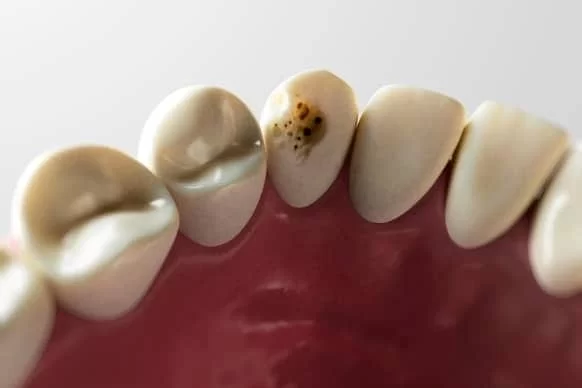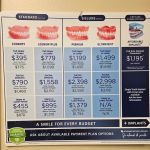
How to Treat an Abscessed Tooth Naturally
Dealing with an abscessed tooth can be a painful and uncomfortable experience, but fortunately, there are natural remedies and treatments you can try at home to ease the pain and promote healing. An abscessed tooth occurs when a bacterial infection forms at the root of your tooth or in the gum surrounding it. This can lead to intense pain, swelling, and in some cases, fever. While professional dental treatment is always recommended for a permanent solution, there are steps you can take at home to manage the discomfort and address the infection naturally.
What is an Abscessed Tooth?
An abscessed tooth is a pocket of pus that forms around the root of a tooth or in the gum tissue due to an infection. This infection can be caused by untreated cavities, gum disease, or trauma to the tooth. The infection causes swelling and throbbing pain that can become worse over time if not treated. Left untreated, the infection can spread to other parts of the body, leading to more serious health complications.
Common Symptoms of an Abscessed Tooth
Before we dive into natural treatments, it's important to recognize the symptoms of an abscessed tooth:
- Severe toothache that may radiate to the jaw, neck, or ear
- Swelling in the gums or face
- Sensitivity to hot or cold foods and drinks
- Fever and swollen lymph nodes
- Bad taste or odor in the mouth
- Pain when chewing or touching the tooth
Natural Remedies for an Abscessed Tooth
If you're experiencing the pain of an abscessed tooth and cannot see a dentist immediately, here are some natural remedies that may help ease the pain and promote healing:
1. Saltwater Rinse
A simple saltwater rinse is one of the most effective and natural ways to reduce inflammation and fight bacteria in your mouth. Saltwater helps draw out the infection and promotes healing. Here's how to do it:
- Mix one teaspoon of salt into a cup of warm water.
- Swish the solution around your mouth for 30 seconds, focusing on the area around the abscess.
- Spit out the solution and repeat this process several times a day to reduce pain and swelling.
2. Cold Compress
A cold compress can help numb the area and reduce swelling around the infected tooth. Simply apply an ice pack or cold cloth wrapped in a towel to the affected area of your face. Keep the compress on for 15-20 minutes, then remove for 15 minutes before repeating. This will help alleviate the throbbing pain and swelling associated with the abscess.
3. Garlic
Garlic has natural antibacterial and anti-inflammatory properties that can help reduce the infection and pain caused by an abscessed tooth. Here's how to use it:
- Crush a fresh garlic clove to release its juices.
- Apply the crushed garlic directly to the affected area or place it between the gum and tooth.
- Allow it to sit for a few minutes before rinsing your mouth with water. Repeat this process a few times a day for the best results.
4. Clove Oil
Clove oil is another powerful remedy known for its ability to relieve pain and fight infection. It contains eugenol, a compound with antiseptic properties that can help alleviate the discomfort caused by an abscessed tooth. To use clove oil:
- Soak a cotton ball in clove oil and gently apply it to the abscessed area.
- Hold the cotton ball in place for a few minutes, then remove.
- Repeat this process two or three times a day for relief from pain and swelling.
5. Turmeric
Turmeric is widely recognized for its anti-inflammatory and antimicrobial properties. It can help reduce the swelling and fight the infection associated with an abscessed tooth. To use turmeric as a remedy:
- Mix a small amount of turmeric powder with water to create a paste.
- Apply the paste to the abscessed area and leave it on for several minutes.
- Rinse your mouth thoroughly with warm water.
- Repeat this process twice a day to reduce swelling and inflammation.
When to Seek Professional Dental Help
While these natural remedies can offer temporary relief and help manage symptoms, it's essential to see a dentist if you have an abscessed tooth. If the infection is not treated, it can spread and lead to serious health complications. A dentist may drain the abscess, prescribe antibiotics, or recommend a root canal to treat the infection and save the tooth.
If left untreated, an abscessed tooth can result in severe pain, systemic infection, and tooth loss. Don't hesitate to reach out to a dental professional if you experience worsening symptoms or if natural remedies fail to provide relief. Regular dental checkups are essential in preventing tooth infections and maintaining optimal oral health.
Prevention of Abscessed Teeth
Preventing an abscessed tooth begins with good oral hygiene practices. Brush your teeth twice a day, floss regularly, and visit your dentist for regular checkups and cleanings. By following these simple steps, you can reduce your risk of developing tooth infections and maintain a healthy smile for years to come.







 Dr. Dental: Dentistry & Braces4.0 (459 review)
Dr. Dental: Dentistry & Braces4.0 (459 review) Dr. Bruce King DDS4.0 (112 review)
Dr. Bruce King DDS4.0 (112 review) OMS Nashville - Dental Implants & Oral Surgery4.0 (245 review)
OMS Nashville - Dental Implants & Oral Surgery4.0 (245 review) Pratte John DDS4.0 (15 review)
Pratte John DDS4.0 (15 review) Affordable Dentures & Implants4.0 (757 review)
Affordable Dentures & Implants4.0 (757 review) Willamette Dental Group - Puyallup4.0 (117 review)
Willamette Dental Group - Puyallup4.0 (117 review) The Importance of Oral Health Education During Pregnancy for a Healthy Pregnancy
The Importance of Oral Health Education During Pregnancy for a Healthy Pregnancy Best Tips for Brushing Your Teeth Properly for Healthy Gums: Essential Techniques for Oral Health
Best Tips for Brushing Your Teeth Properly for Healthy Gums: Essential Techniques for Oral Health Why Skipping Dental Checkups Can Lead to Bigger Oral Health Problems
Why Skipping Dental Checkups Can Lead to Bigger Oral Health Problems Advantages of Porcelain Dental Restorations
Advantages of Porcelain Dental Restorations How Can Diabetes Cause Tooth and Gum Problems? Preventing and Managing Oral Health Issues
How Can Diabetes Cause Tooth and Gum Problems? Preventing and Managing Oral Health Issues Healthy Habits for Promoting Good Oral Health and Hygiene: Tips for a Healthy Smile
Healthy Habits for Promoting Good Oral Health and Hygiene: Tips for a Healthy Smile